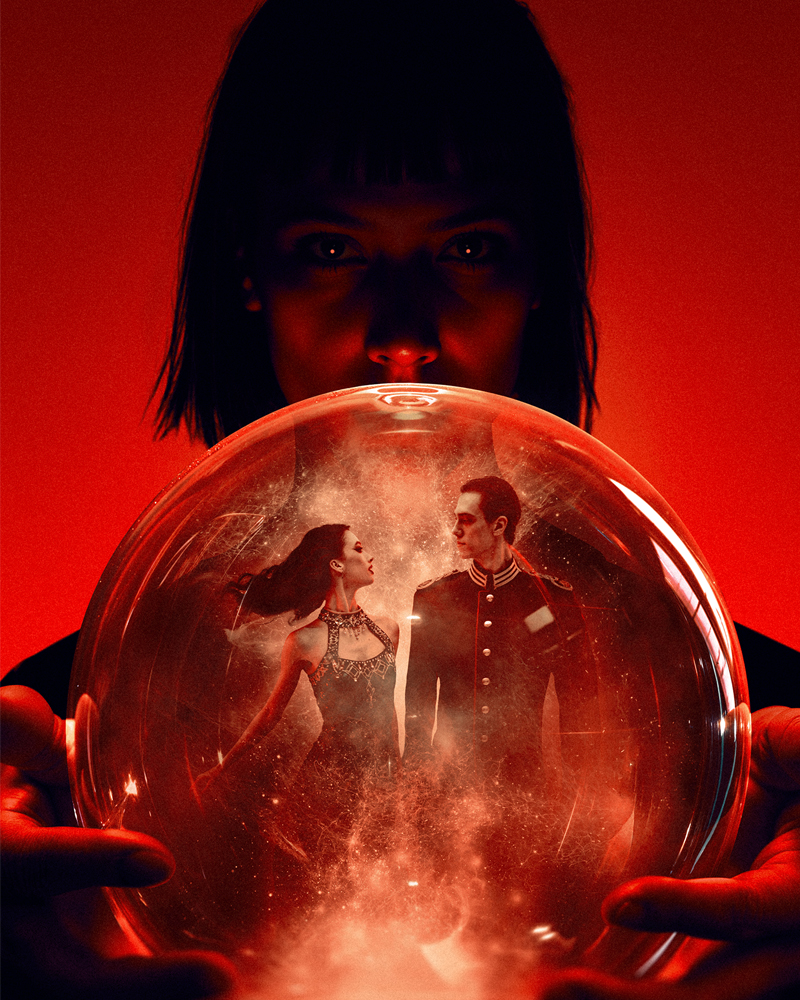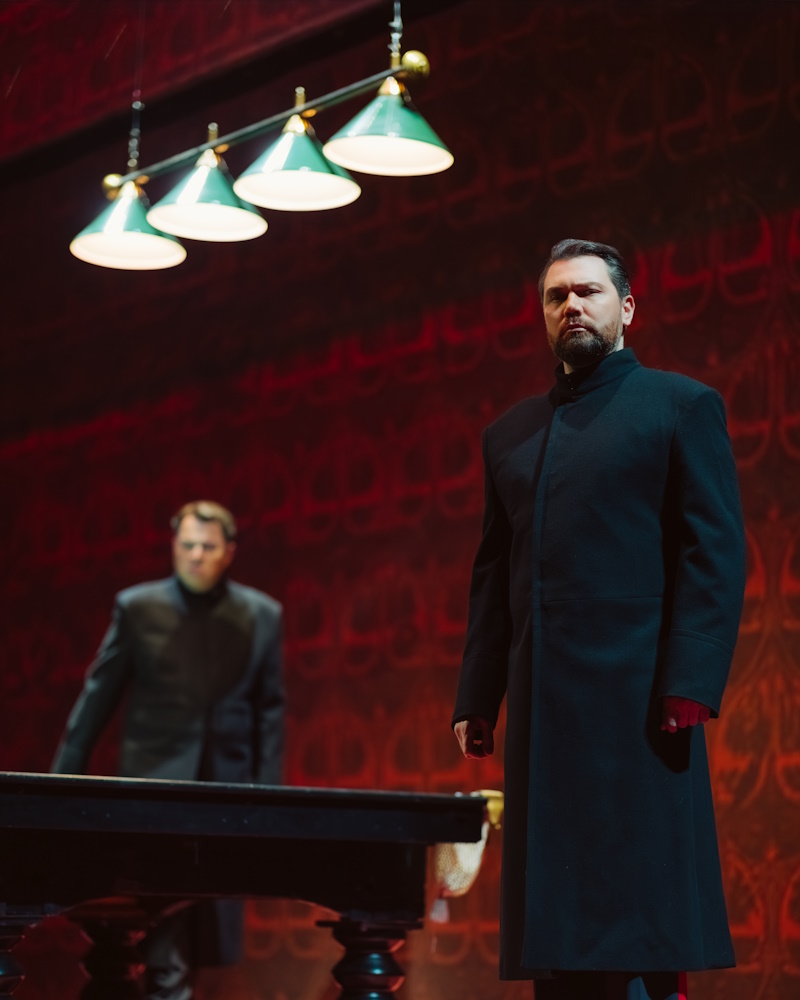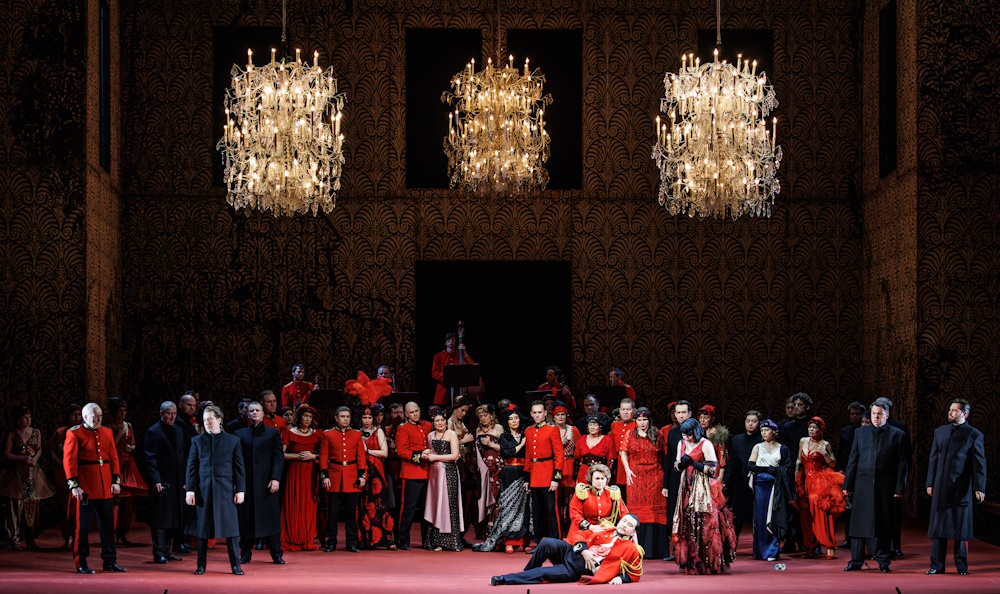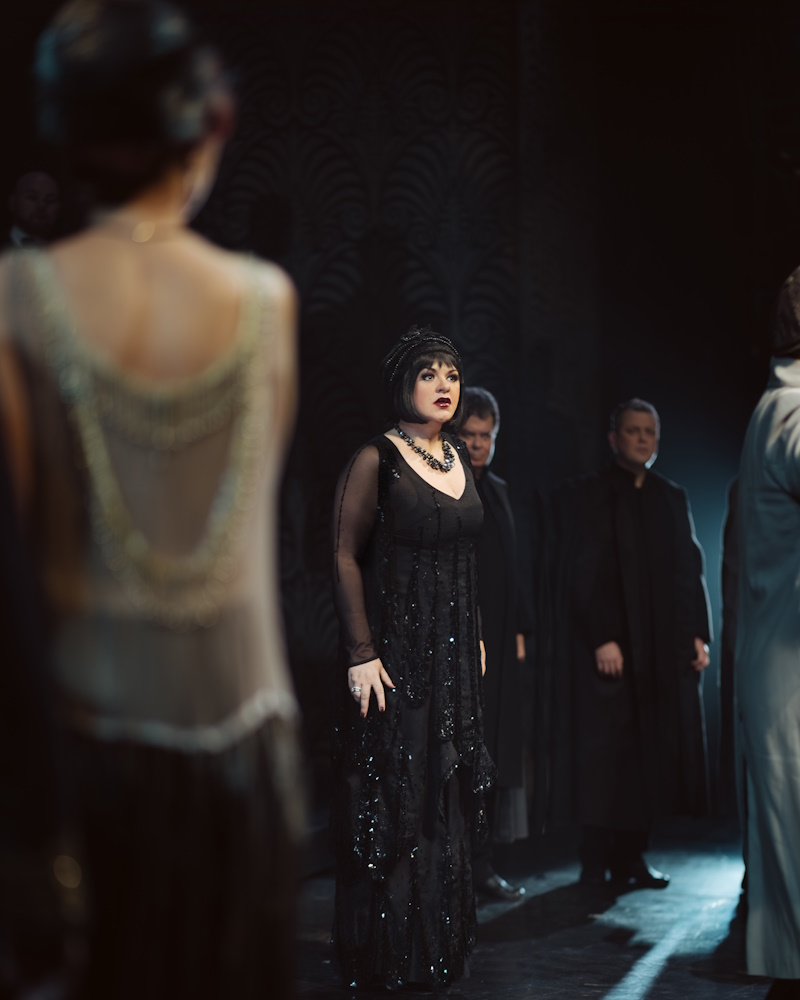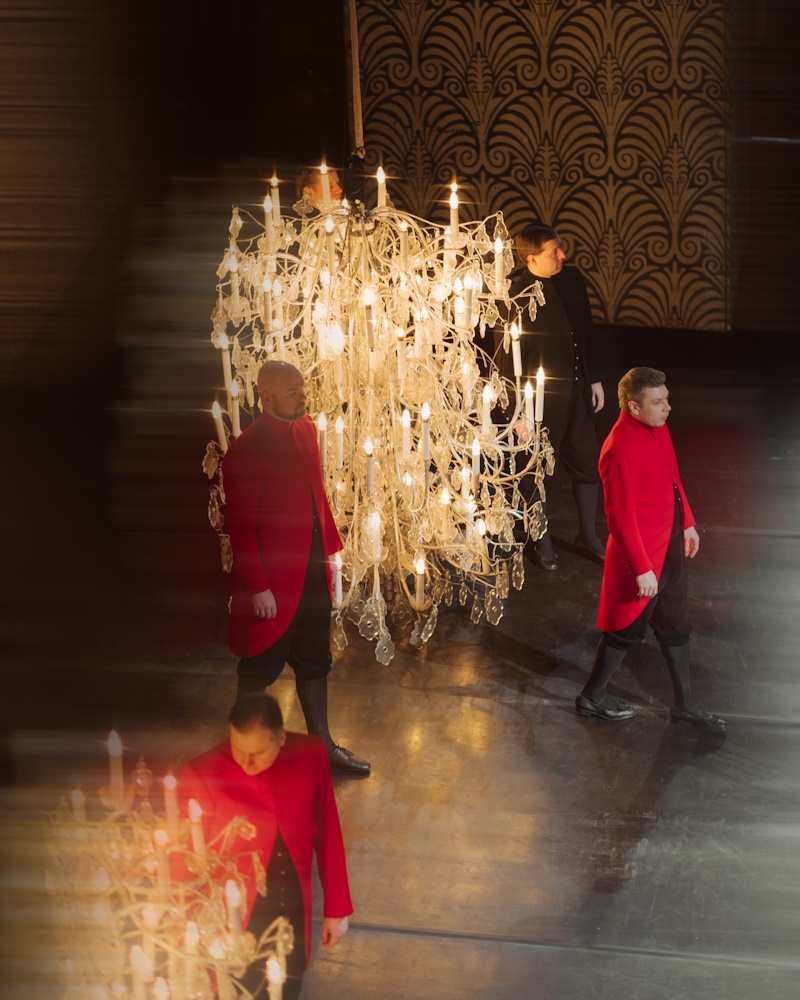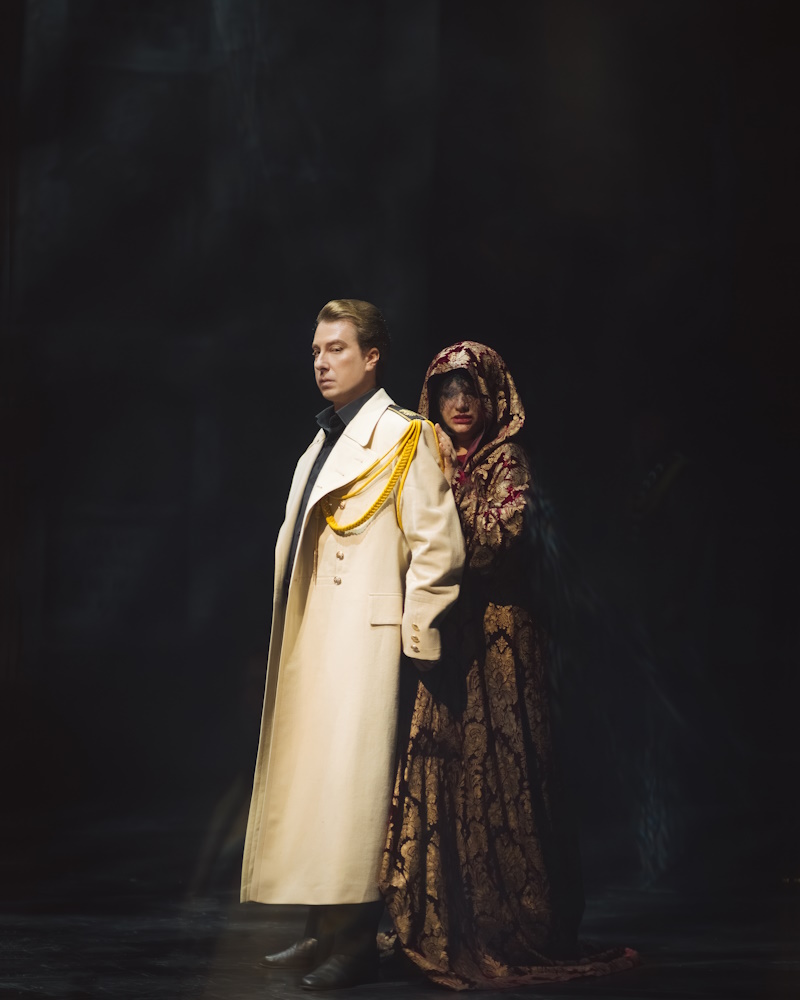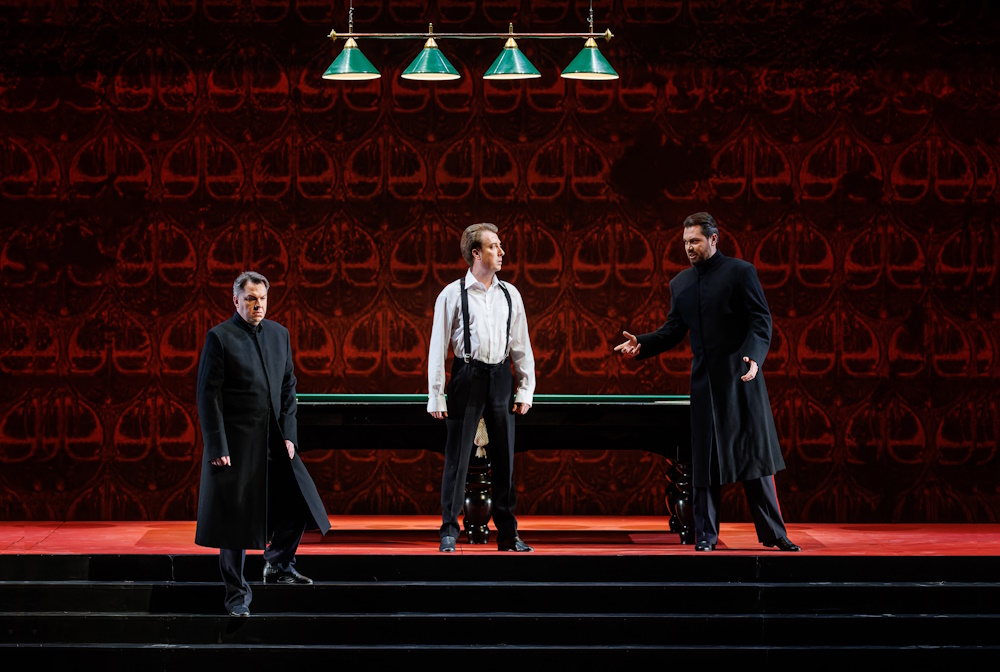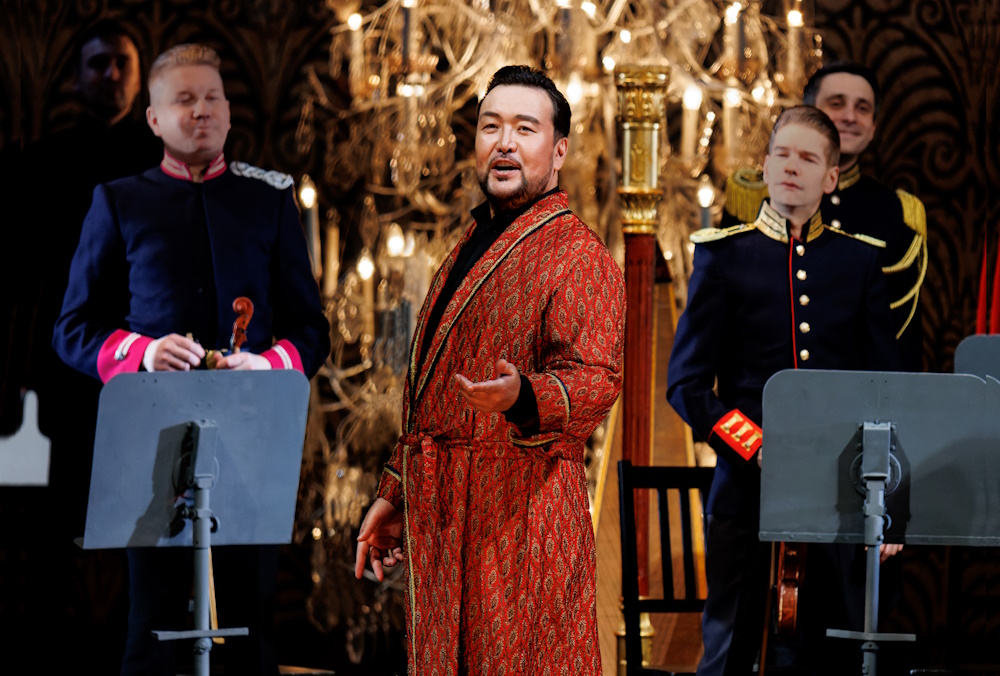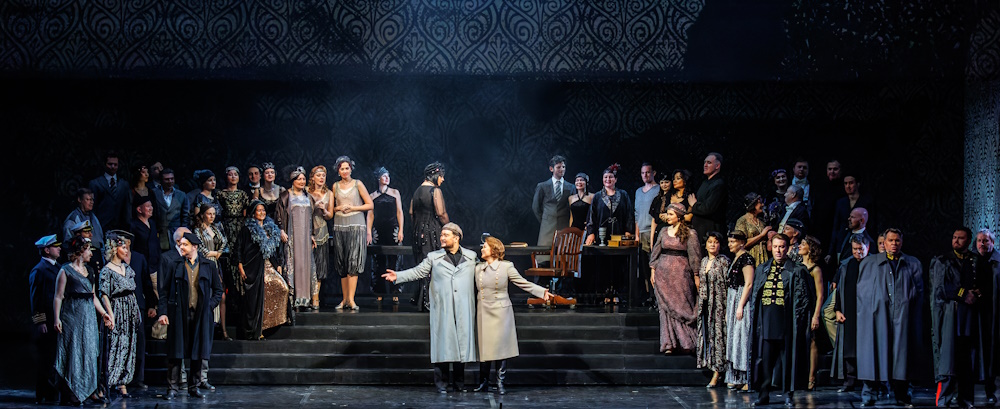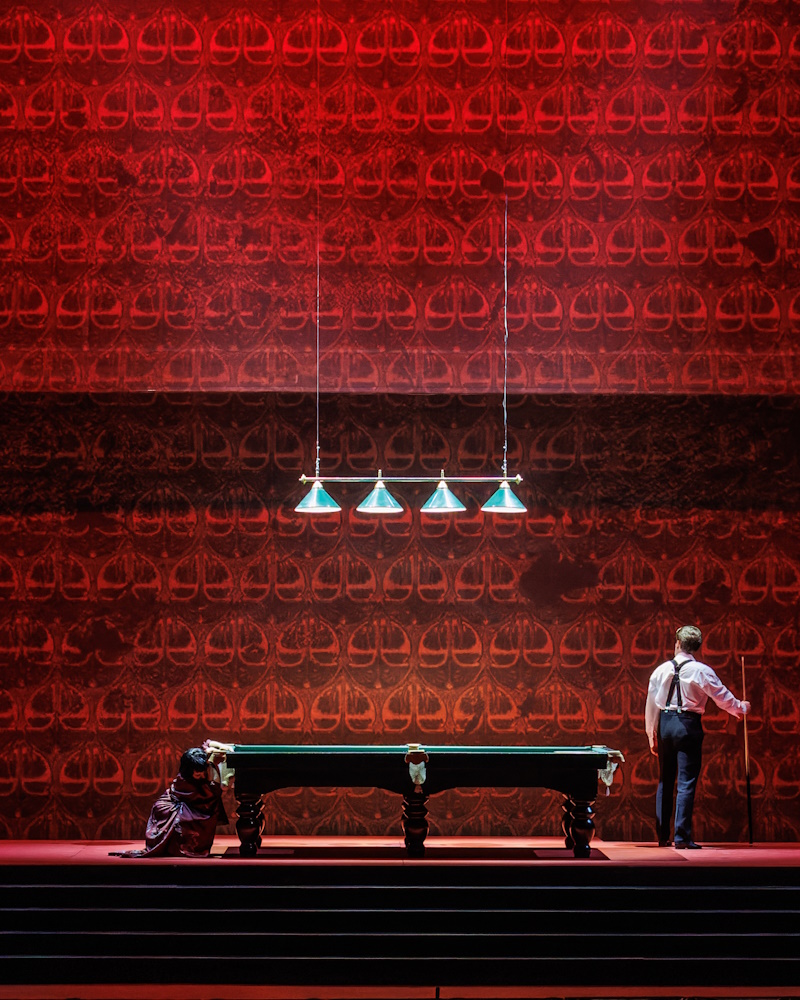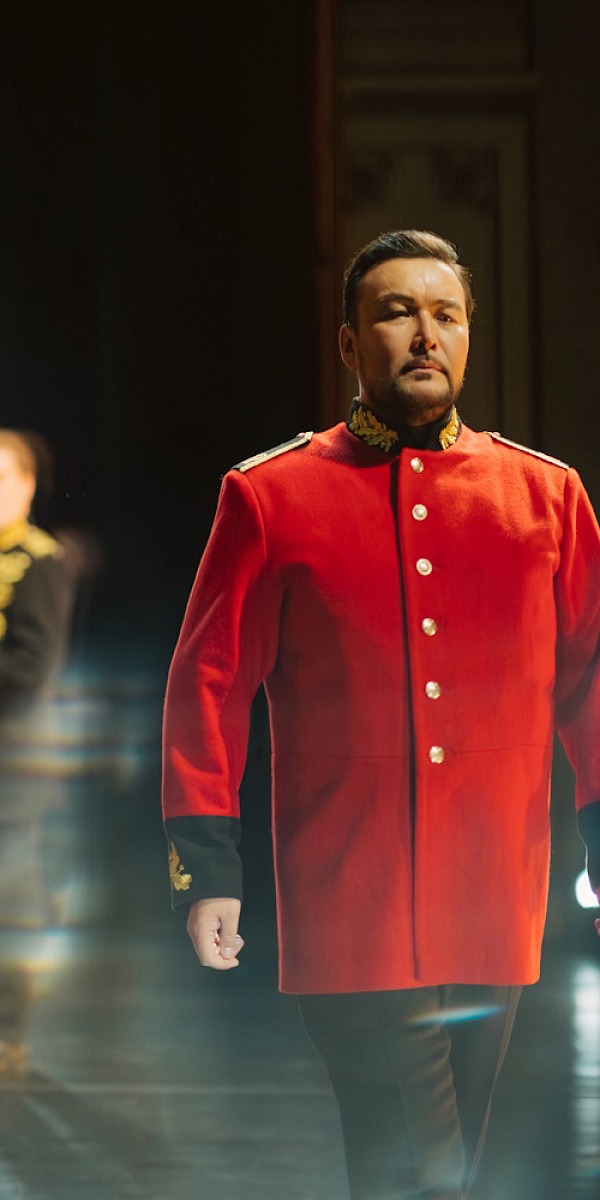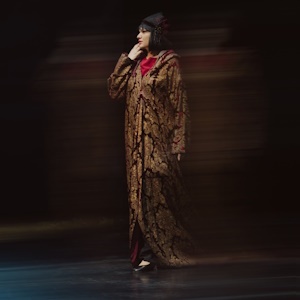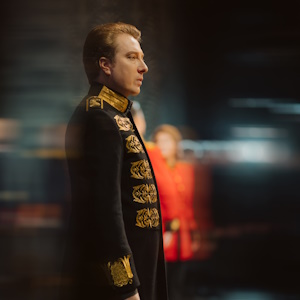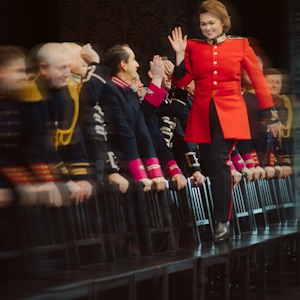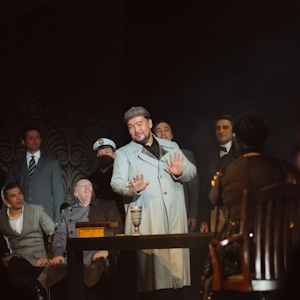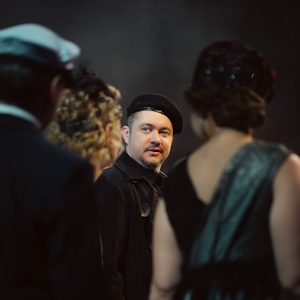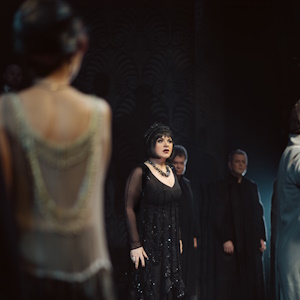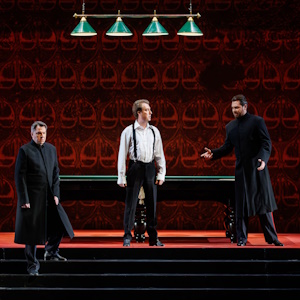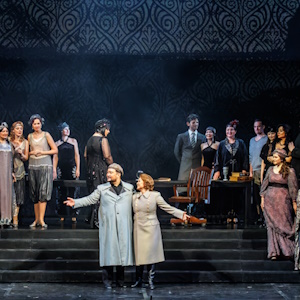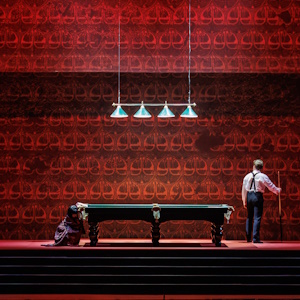Un ballo in maschera
opera in three acts
music by Giuseppe Verdi
 performed in Italian (with Russian surtitles)
performed in Italian (with Russian surtitles)
Cast




Un ballo in maschera is one of Giuseppe Verdi’s crowning achievements. The opera is distinguished by the beauty of its vocal parts, the expressiveness of its ensemble singing, the brilliance of the orchestration, and by what Russian theatre historians often call ’Shakespearian might’. Verdi has constructed a musical drama around a series of contrasting moods, leavened the mysterious and gloomy scenes with a light lyricism, and framed the tragic denouement in the energetic gaiety of a costumed ball.
At the heart of the fable is a story of political conspiracy which gets mixed up with personal revenge. Since the opera’s libretto had to undergo a series of rewritings due to censorship, today’s producers are at liberty to choose the time and place in which the opera takes place, in keeping with their own artistic concept. In the Mikhailovsky Theatre production, we see a story of the turn of the century: at the start of the 20th century, empires crumbled, and a familiar way of life disappeared together with them.
Act one
King Gustavo receives his court at his castle. Oscar, Gustavo’s page, brings a list of people invited to an upcoming masked ball. Among them, the king notices the woman he is secretly in love with — Amelia, the wife of Renato, his secretary and friend. Renato warns the king of a conspiracy against him, but Gustavo ignores the threat. The judge tells the king about the fortuneteller Ulrica, who has been accused of witchcraft and is to be banished. Deciding to see for himself, the king arranges for his court to pay her an incognito visit.
In disguise, Gustavo watches Ulrica making her prophecies. Soon, she sends her visitors away to admit Amelia, who is tormented by her forbidden love for the king and asks for a means to bring peace to her heart. Ulrica tells her that she must gather a magic herb at the cemetery after dark. Gustavo decides to follow her that night but before he asks Ulrica to read his palm. She tells him that he will die by the hand of the first person that shakes his hand. Renato rushes in and Gustavo clasps his hand saying that the oracle has been disproved since Renato is his most loyal friend.
Act two
Gustavo and Amelia meet at the cemetery and admit their love for each other. Amelia hides her face when Renato suddenly appears, warning the king that assassins are nearby. Gustavo makes Renato promise to escort the woman back to the city without lifting her veil, then escapes. Finding Renato instead of their intended victim, the conspirators make ironic remarks about his veiled companion. When Amelia realizes that her husband will fight rather than break his promise to Gustavo, she drops her veil to save him. Renato, shocked by the king’s betrayal and his wife’s seeming infidelity, asks the conspirators to come to his house the next morning.
Act three
Renato threatens to kill Amelia, and she asks to see their young son before she dies. The conspirators arrive. They decide to draw lots to determine who will kill the king, and Renato’s name comes up.
Gustavo resolves to renounce his love and to send Amelia and Renato to England. Oscar brings a letter from Amelia warning him of the murder plot, but the king refuses to be intimidated and leaves for the masquerade.
In the ballroom, Renato learns from Oscar what costume the king is wearing. In the meanwhile, the king meets Amelia and tells her that he is sending her away with her husband. As the lovers say goodbye, Renato kills the king. The dying Gustavo forgives his murderer and assures Renato that his wife is innocent.
Premiere of the production: 21 July 2010
Libretto by Antonio Somma and Francesco Maria Piave
after the play Gustave III by Eugène Scribe
- Stage DirectorAndrejs Žagars
- Stage DesignerAndris Freibergs
- Costume DesignerKristine Pasternaka
- Lighting DesignerKevin W. Jones
- ChoreographyElita Bukowska
- Assistant to Stage DirectorDace Wohlfahrte
- Assistant to Stage DesignerElena Zykova
- DirectorYulia Prokhorova
- Principal PianistMarc Vayner
- Chorus MastersAlexey Dmitriev, Sergey Tsyplenkov
Sets and costumes produced at the Vozrozhdenie Theatrical Design Studios

